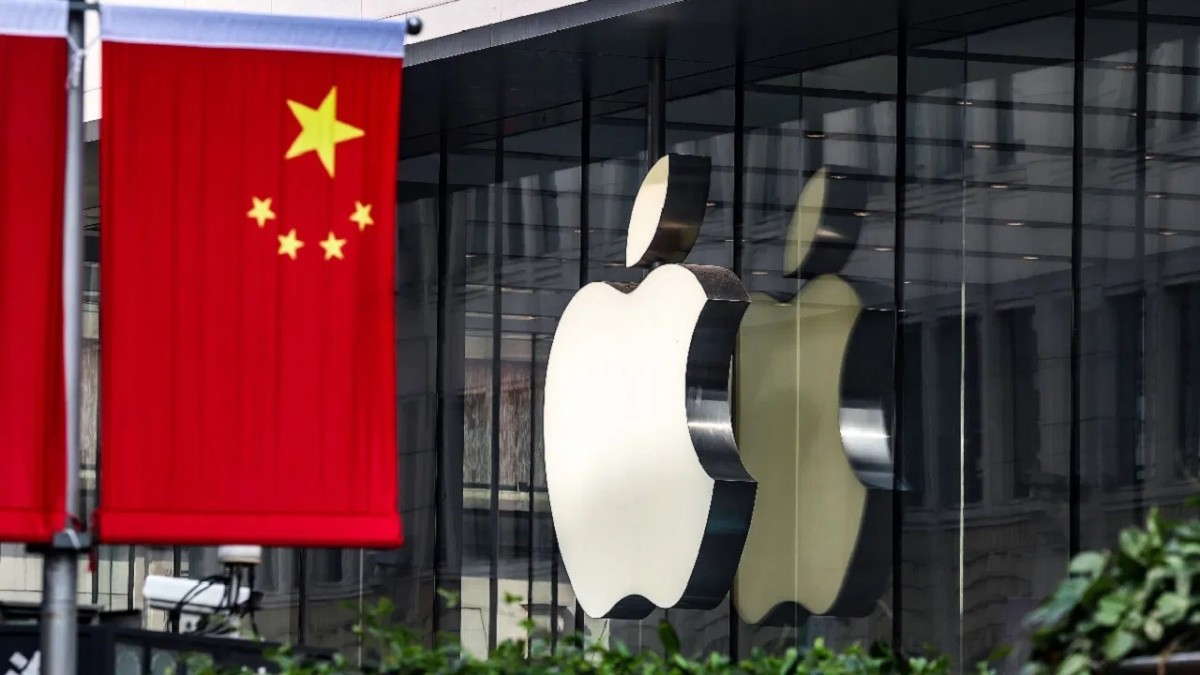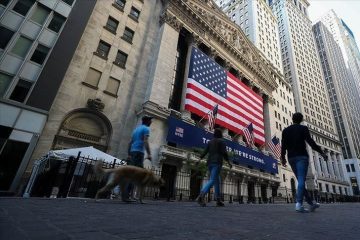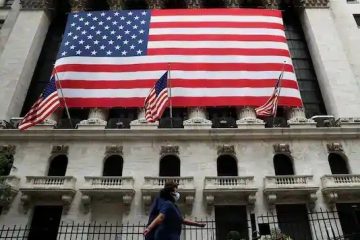Apple Becomes the Biggest U.S.-China Pawn Yet

Apple might be the king of tech. But in the growing cold economic war between the world’s two biggest economies, it is becoming just another game piece—albeit a big one. Still the world’s largest public company by market value, Apple has seen that value take a notable hit this week on increasing signs that its business in China might be coming under threat.
The Wall Street Journal reported on Wednesday that the Chinese government is banning the iPhone and other foreign-branded devices from use by workers at central government agencies. Bloomberg reported Thursday that such a ban might also be extended to state-owned enterprises and other government-backed entities. That could amount to a significant swath of people in a state-led economy with a population totaling more than 1.4 billion.
According to China’s National Bureau of Statistics, about 56.3 million urban workers were employed by “state-owned units” in 2021. Those jobs commanded an average wage about 8% above the national urban average—an attractive segment for a company specializing in premium devices. And because Apple now ships roughly 230 million iPhones globally every year, 56 million would be a notable chunk to take out of the pool of potential buyers—especially in a mature global smartphone market with low growth prospects.
On top of that, Chinese tech giant Huawei Technologies has launched a new smartphone reportedly delivering 5G-like speed, despite a U.S. ban on the type of advanced chips typically necessary for such devices. The new device called the Mate 60 Pro sold out within hours and has already amassed back-orders. It also conveniently launched just ahead of Apple’s expected unveiling of this year’s iPhone lineup at an event scheduled for next week.
Apple’s stock price has thus slumped nearly 7% over the past two days, costing the company about $194 billion in market value. That might seem excessive considering the many unknowns about the reported iPhone bans and how they could ultimately play out. Also, China has at least some interest in not overly harming a major local employer during a time of growing unemployment. One Chinese city alone reportedly has more than one million workers building Apple products or employed in related jobs.
But Apple’s stock price has been on a strong run, rising 46% for the year ahead of this week’s news. That had put the shares near 30-times forward earnings, a historically high multiple for a cyclical, hardware-focused business. The shares were actually exceeding Wall Street’s median price target for the first time in 18 months just ahead of the company’s latest quarterly results in early August, according to FactSet. The recent developments are also just the latest challenge Apple has faced in the country that now serves as its third-largest geographical segment, accounting for 19% of the company’s total revenue in the 12-month period ending in June.
Apple’s sales in its Greater China segment also generated pretax operating margins that were 12 percentage points higher than the company’s total during its most recent fiscal year. Covid-19 restrictions and social unrest crimped production of iPhone Pro models in China last year, resulting in delayed shipments during a key sales period. Apple is trying to diversify its manufacturing footprint, with the company now building devices in countries such as India and Vietnam.
But China is still the company’s largest manufacturing base by far. And the iPhone is still Apple’s largest business, accounting for 52% of revenue. That ironically makes Apple a relatively easy target in the economic war between the U.S. and China. The U.S. has enacted severe restrictions on shipments of advanced chips and related technology to China, which has in turn responded by imposing its own restrictions on U.S. businesses such as memory-chip maker Micron.
China has also deployed other creative punishments for U.S. firms, such as withholding approval on major mergers and acquisitions, throwing a wrench into growth plans for major U.S. semiconductor companies such as Qualcomm , Intel and Applied Materials.
Throwing a rock at Apple also creates major ripples across the tech pond. The company is one of the world’s largest buyers of chips for its devices, so the PHLX Semiconductor Index slipped 2% Thursday while companies such as Qorvo and Skyworks, which supply key radio-frequency chips used in the iPhone, slid more than 7% each. And companies such as HP and Dell —U.S. personal-computer makers that also have major manufacturing facilities in China—each saw their shares fall more than 2%.
If Apple can’t dodge the bullets between the U.S. and China, who really can?




